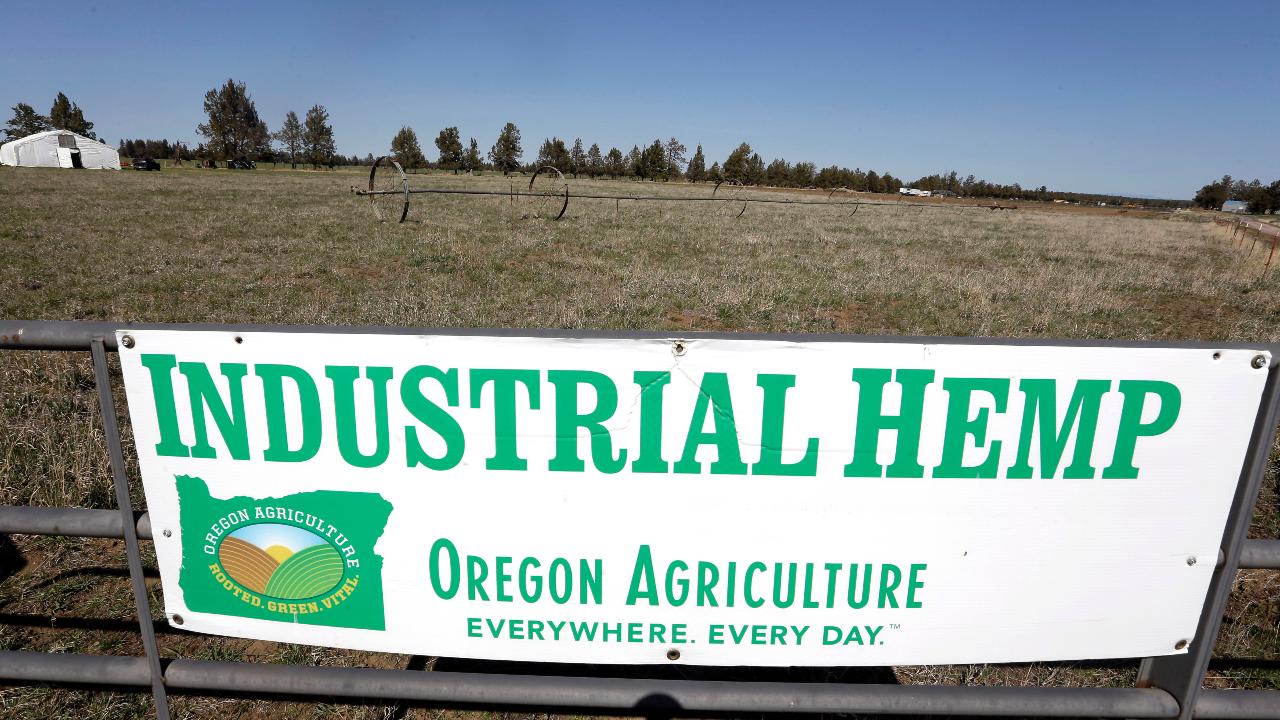Hemp CEO: Thanks to Farm Bill, the hemp revolution will now be 'Made in America'
Legal hemp is here.
The 2018 Farm Bill, which legalizes the cultivation of industrial hemp, was signed this week by President Donald Trump. This marks the start of a clean, green agricultural-industrial revolution in America.
For the last ten years, I’ve been CEO of Hemp, Inc., working with local American farmers and entrepreneurs in states where growing hemp is legal (despite the up-until-now federal prohibition). Removing the federal ban on industrial hemp cultivation opens up interstate hemp commerce and bank financing. According to Forbes, China currently dominates the cannabis market by producing 50 percent of the world’s supply. However, the great news is the Farm Bill sets the stage for the U.S. to dominate the industry.
Here are my predictions for what’s going to happen in the next few years with legalized hemp:
Bringing Back Small Family Farms
According to government data, since the Great Depression, two-thirds of small family farms have disappeared. What was once the backbone of many communities has been lost. In today’s world, traditional crops—corn, soybeans, etc.—have tight profit margins that can’t support a family anymore.
Legal hemp will change all that.
By growing high-CBD hemp, I’ve seen a small farm (7 acres!) earn $1.2 million in one year; I’ve seen another farm (55 acres) make $8 million in a year. Other crops will typically leave new farmers earning, on average, $26,000 for the first five years. It only takes a few acres of hemp while growing other crops to turn a substantial profit.
As hemp has become legal in states over the last few years, there has been a tidal wave of farmers eager to grow hemp, because they’re not making money in other plants.
In states like North Carolina, Oregon and Florida, we’re seeing hundreds of high paying jobs emerge because of hemp farming. We support the local farm worker by paying more than the average farm worker’s $10.95 hourly wage; as an example, we employed 40 trimmers this year that were making more than $35 an hour.
In the 60s, there was a back-to-the-land movement, but for many idealistic people seeking a simpler way of life, the economics of an agrarian lifestyle didn’t work. Hemp will make back-to-the-land financially viable and return the small family farm to a prominent place in the American economy—without the need for massive government subsidies.
Unleashing Several Multi-Billion Dollar Industries
Some expect the global industrial hemp industry to hit $20 billion by 2022. According to Congressional Research Service, up until now, the U.S. has imported on average $100 million worth of hemp products each year. Legalization means that money can now go to American farmers and companies.
Today’s hemp demand far outstrips supply. In the past hemp was primarily used for textiles. With the new Farm Bill making hemp research possible, hemp is poised to disrupt multibillion-dollar industries like healthcare, construction and even energy.
According to Forbes, CBD (cannabidiol) oil is poised to grow to a $2.1 billion consumer industry by 2020, 700 percent growth from 2016. CBD oil can reportedly help treat a wide range of ailments—everything from pain to acne to epilepsy.
And CBD oil is just one of the thousands of possible uses for hemp. Scientists can now investigate the dozens of other cannabinoids and terpenes present in cannabis. Who knows how much these hemp-derived chemicals will be worth in the future?
The legalization of hemp will also usher in a new cast of entrepreneurs who transform existing industries. Products like Hempcrete allow for sustainable housing to be built. Hemp plastic is cheaper than some alternatives and is also biodegradable. Hemp can even be turned into biodiesel.
Transforming the Health and Wellness of Our Country
We’ve only begun to scratch the surface of hemp’s uses, but one of the clearest benefits it will have is on our nation’s health and wellness.
Just this year, the FDA approved the first cannabis-based drug to treat epilepsy. Other research suggests even greater uses. Cannabinoids has been used to help keep opioid addicts from relapsing. It has been used to help treat diabetes. Some research suggests CBD oil can reduce anxiety. According to a recent survey, nearly 50% of people who used CBD to treat a medical issue stopped using traditional prescription medications.
With more research funds and greater acceptance of cannabis-derived products as a viable medicinal substitute, the healthcare industry will be transformed. According to a report in Health Affairs, Medicare could have saved a billion dollars a year on prescription costs alone if medical marijuana was legal. With the highest medical costs in the world, relief can’t come soon enough to Americans.
Challenges still remain for the hemp industry after legalization. We need to build up the local infrastructure and educate people about hemp. But the worldwide demand for the environmentally sustainable products and medicines made possible by hemp shows no signs of slowing down.
Bruce Perlowin is the CEO of publicly-traded Hemp, Inc. He currently is facing SEC fraud charges that were filed in 2016. Perlowin was also formerly known as the “King of Pot,” after spending nine years in prison for marijuana smuggling. He denies all current SEC charges and is locked in a legal battle to clear his name.




















